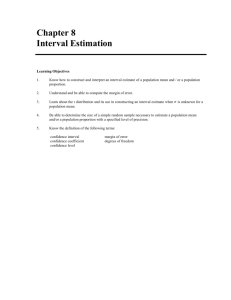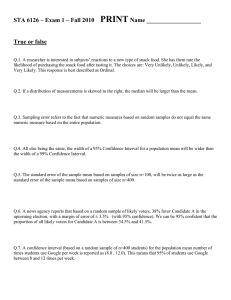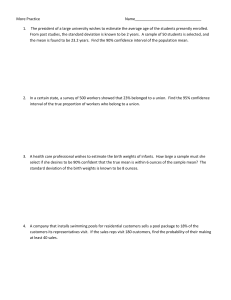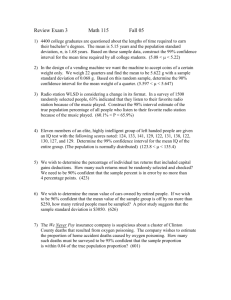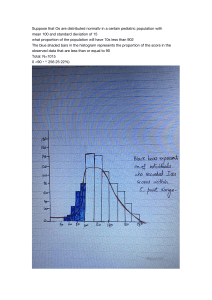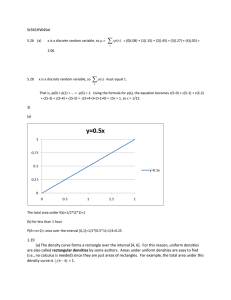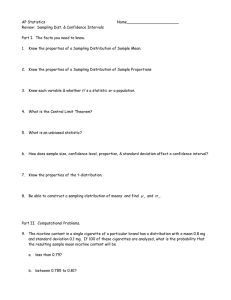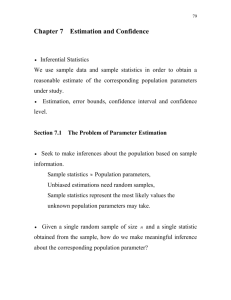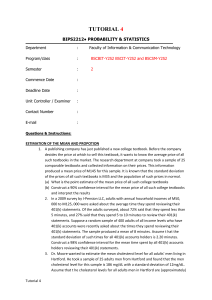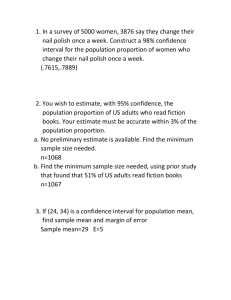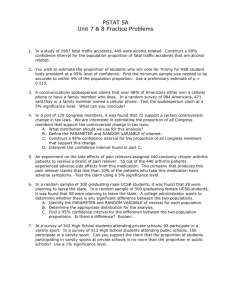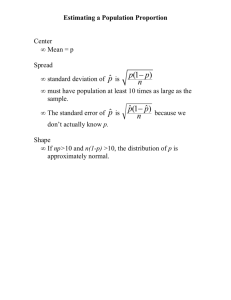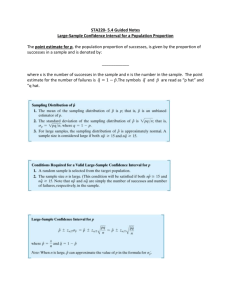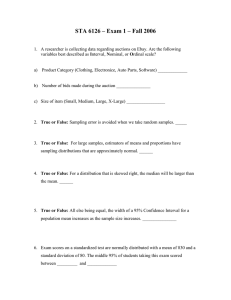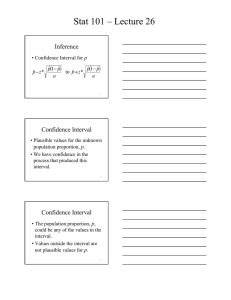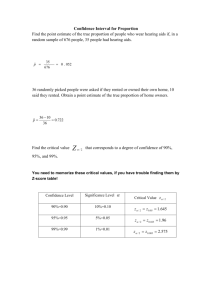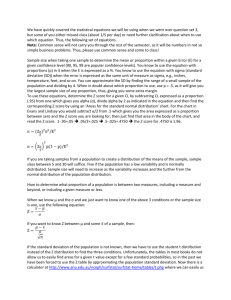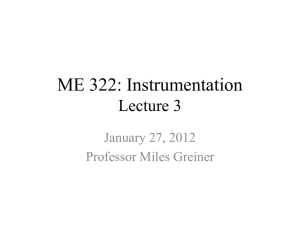USE OF THE t DISTRIBUTION
advertisement
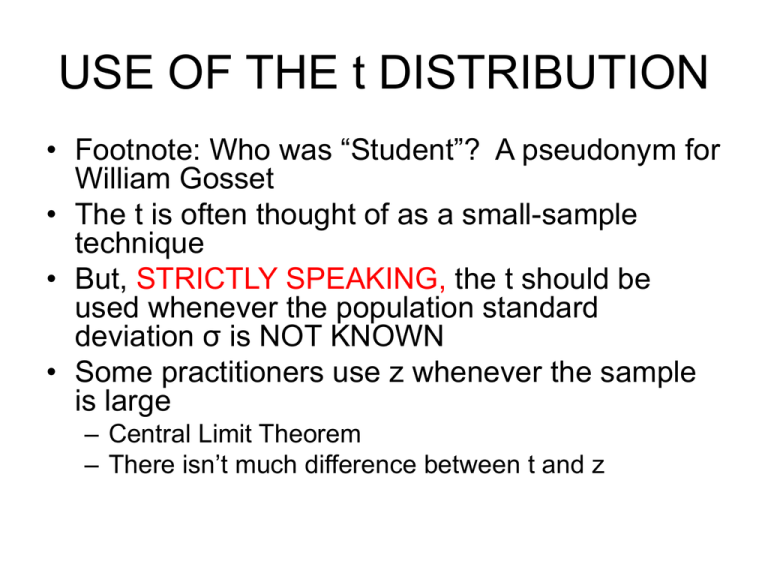
USE OF THE t DISTRIBUTION • Footnote: Who was “Student”? A pseudonym for William Gosset • The t is often thought of as a small-sample technique • But, STRICTLY SPEAKING, the t should be used whenever the population standard deviation σ is NOT KNOWN • Some practitioners use z whenever the sample is large – Central Limit Theorem – There isn’t much difference between t and z Population standard deviation known? Yes No Population normal? Yes Population normal? No Yes No Sample Size Sample Size z value n >= 30 n < 30 z or t (see t value note) ERROR n >= 30 n < 30 z or t (see note) ERROR Notes: • For large samples with σ unknown, different practitioners may proceed differently. Some argue for using a z, appealing to CLT. Others use a t since it gives a less precise estimate. For this course: use a t whenever the population standard deviation is not known. • Small samples from non-normal populations are beyond the scope of this course Confidence intervals for the population proportion • Sample proportion p = x/n • E(p) = and p (1 ) n In general is not know, so must be estimated with p and we use sp p (1 p ) n • Then the confidence interval is • p zC sp • Note that proportion problems always use a z value – Normal approximates binomial • EXAMPLE: Of 112 students in a sample, 70 have paying jobs. Calculate a 95% confidence interval for the proportion in the population with paying jobs. • p = 70/112 = 0.625 0.625 0.375 sp 0.045745315 112 • 0.625 1.96 * 0.045 etc. • 0.625 0.089660819 or 0.625 0.09 • We are 95% confident that 0.54 0.71 • EXAMPLE: • In a sample of 320 professional economists, 251 agreed that “offshoring” jobs is good for the American economy. Calculate a 90% confidence interval for the proportion in the population of professional economists who hold this view. Finding the Right Sample Size • The error in the estimate is given by σp or, substituting e zC (1 ) n Solving for n yields: n 2 zC (1 ) 2 e zC • In general is not known • Two solutions: – Assume = 0.5 • Result is the largest sample that would ever be needed – Conduct a pilot study and use the resulting p as an estimate of • May give a somewhat smaller sample size if p is much different from 0.5 • Saves sampling cost Example: • Above we had a 95% confidence interval with n = 112 of 0.625 0.09 or a 9% error. Suppose we require a maximum error of 3%. • Approach 1: let = 0.5 1.96 0.5 0.5 n 1067 . 11 1068 2 .03 2 • Approach 2: assume = 0.625 1.96 0.625 0.375 n 1000 . 41 1001 2 .03 2 The difference is more dramatic if p is much different from 0.5. In a random sample of 300 students in NC, 30 have experienced “study” abroad. A 95% confidence interval for the population proportion is 10% 3.4%. Suppose we require a maximum error of 2%. Approach 1 gives _______ and approach 2 gives _________.
